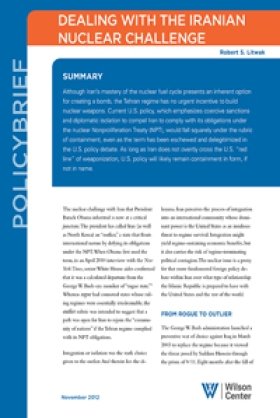"The Foundation of Interrogation" Is Rapport, Not Torture
Relationship-building techniques helped U.S. interrogators obtain the intelligence that led to the June 2006 airstrike on Al Qaeda leader Abu Zusab al Zarqawi's safehouse in Iraq. Matthew Alexander, former Air Force Criminal Investigator, discusses his experience and his book, How to Break a Terrorist.
In February 2006, the Al Qaeda attack on the al-Askari shrine, with its famous Golden Dome in Samarra, north of Baghdad, pushed Iraq toward an open civil war between the Shia and Sunni sectarian communities. Abu Zusab al Zarqawi, the head of Al Qaeda in Iraq, became the U.S. military's top immediate target, eclipsing Osama bin Laden. But the use of "enhanced interrogation techniques," what Matthew Alexander, former Air Force interrogator, calls "force on force" techniques yielded nothing. In the wake of those failures, Alexander was deployed to Iraq as part of a handpicked team of interrogators, who employed non-coercive interrogation techniques and eventually broke the case.
In the event, part of International Security Studies' ongoing Terrorism and Homeland Security Forum, Alexander stated emphatically that torture is both immoral and ineffective. Using "rapport-building" techniques, the success rate of getting people to cooperate rose from 20 percent to 70 to 80 percent.
"Relationship-building is the foundation of interrogation," he said, a tenet reflected in his book, How to Break a Terrorist: The U.S. Interrogators Who Used Brains, Not Brutality, to Take Down the Deadliest Man in Iraq.
The interrogator must understand the suspect's motivations, and then incorporate that understanding into the design of an effective counter-strategy. Often "the strongest motives in life are intangible," he observed. Even when the U.S. interrogator spoke Arabic, native Iraqi interpreters were essential as "a cultural encyclopedia" to help the Americans fully understand the local context of suspects' answers.
No Sunni Iraqis Alexander met truly believed in Al Qaeda's ideology. Some Al Qaeda in Iraq members were just criminals, running kidnapping rings for Zarqawi. The Sunni-Al Qaeda alliance was "a marriage of convenience" that General David Petraeus was able to successfully sever by co-opting the Sunnis, however tentatively, back into the political process.
Through a series of arrests and successful interrogations, employing rapport-building techniques rather than coercion, Alexander and his team were able to obtain the intelligence that led to the successful airstrike on Zarqawi's safehouse in June 2006.
Alexander welcomed President Obama's executive orders banning torture and establishing a Special Interagency Task Force on Detainee Disposition. Alexander rejected the assertion of former Bush administration officials that the use of "enhanced interrogation techniques" on top Al Qaeda suspects had been necessary to avert terrorist attacks: There is "no scientific data that torture works faster and is more effective. Experience points to the exact opposite." Abu Ghraib and Guantanamo, Alexander stated, became recruiting tools for Al Qaeda that directly led to the loss of U.S. lives in Iraq.


